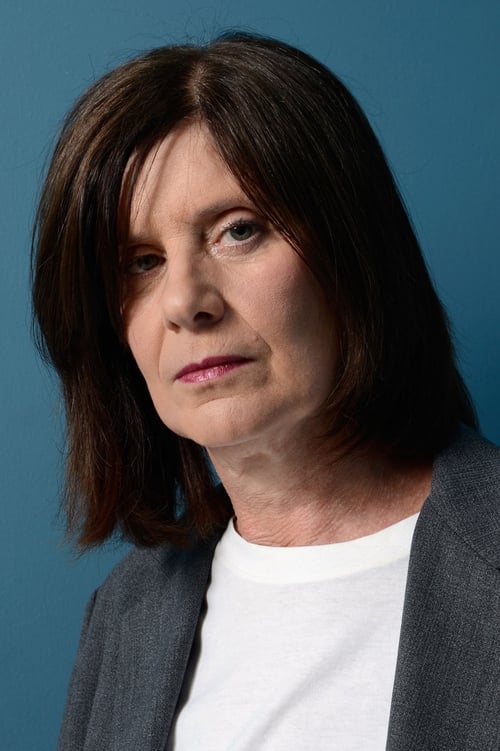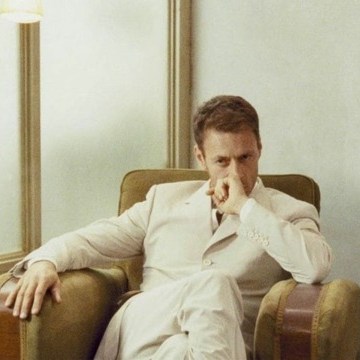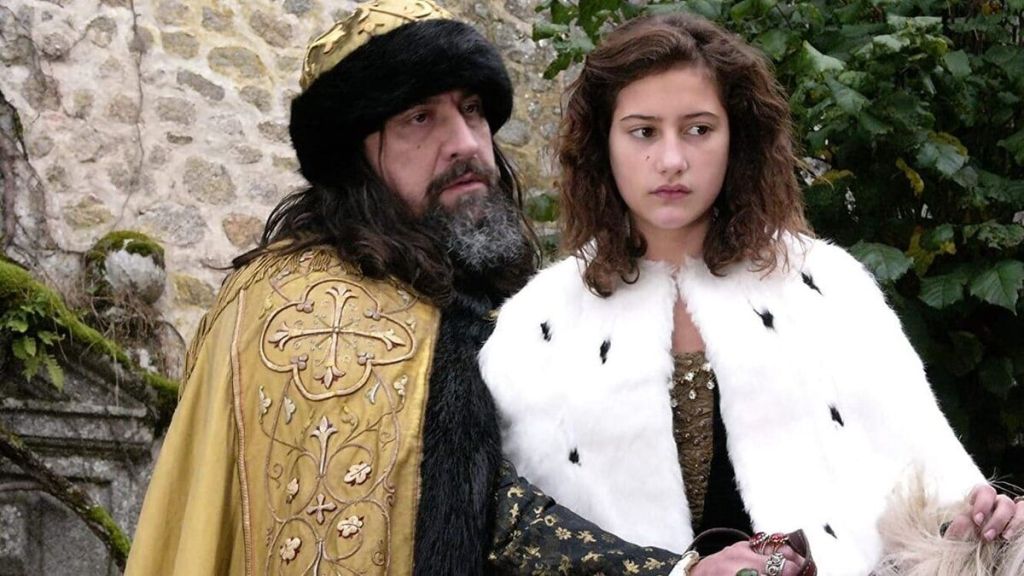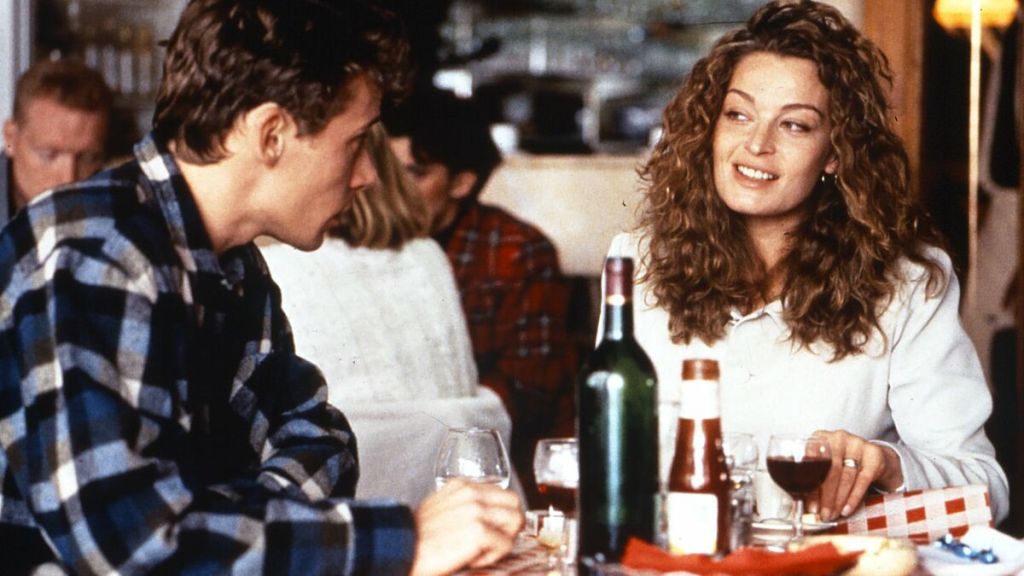Catherine Breillat is a French filmmaker and writer renowned for her provocative and often controversial exploration of sexuality and gender within her films. She is best known for creating works that delve deep into the human psyche, challenging societal norms and expectations concerning sexuality and relationships. Breillat’s films, such as Fat Girl and Romance, often ignite conversations and debates due to their explicit content and bold narrative approaches.
Breillat’s foray into filmmaking began in the 1970s, but it was her later works that truly established her as a daring and influential voice in contemporary cinema. 36 Fillette, an early film, laid the groundwork for her thematic preoccupations, exploring the sexual awakening of a young girl. However, it was Romance in 1999 that marked a turning point in her career, garnering international attention for its graphic depiction of sex and the psychological depths it plumbed. This film, along with Fat Girl, released in 2001, are often cited as a seminal works that encapsulate Breillat’s confrontational style and thematic concerns. Throughout her career, Breillat has faced both critical acclaim and controversy, with her films provoking strong reactions for their explicit content and the challenging questions they raise about sexuality and power.
Breillat’s films are special for their fearless examination of sexuality, with a distinct focus on female sexuality, desire, and identity, offering viewers a raw and unapologetic portrayal of these themes. Her films frequently engage with taboo subjects, exposing the intricacies of sexual awakening, exploration, and the often tumultuous journey towards self-discovery. For instance, in Anatomy of Hell, Breillat pushes boundaries to explore the complex dynamics between male and female sexuality, using visual metaphors and stark, uncompromising imagery to narrate a powerful story of alienation and desire.
Moreover, Breillat’s approach to filmmaking is characterised by her willingness to take risks and confront uncomfortable truths. She uses her unique visual style and narrative structures to dismantle societal conventions, often opting for non-linear storytelling and visually arresting images to convey the internal struggles and desires of her characters. In Bluebeard, Breillat revisits a classic fairy tale, infusing it with her distinctive stylistic and thematic elements, providing audiences with a fresh, thought-provoking perspective on familiar narratives. This blend of daring thematic exploration and innovative stylistic approaches makes Breillat’s body of work stand out as both challenging and immensely rewarding.

Catherine Breillat (1948 – -)
Calculated Films
- NA
Similar Filmmakers
- Abdellatif Kechiche
- Alain Guiraudie
- Bruno Dumont
- Claire Denis
- Francois Ozon
- Gaspar Noe
- Joao Pedro Rodrigues
- John Cameron Mitchell
- Karim Ainouz
- Laetitia Masson
- Lars von Trier
- Lucile Hadžihalilović
- Marina de Van
- Michael Haneke
- Nina Menkes
- Pascale Ferran
- Todd Solondz
- Virginie Despentes



Catherine Breillat’s Top 5 Films Ranked
1. Bluebeard (2009)
Genre: Fairy Tale, Drama

2. Fat Girl (2001)
Genre: Coming-of-Age, Drama

3. Brief Crossing (2001)
Genre: Drama, Romance

4. Sex is Comedy (2002)
Genre: Drama, Comedy

5. Perfect Love (1996)
Genre: Romance, Drama

Catherine Breillat: Themes and Style
Themes:
- Female Sexuality and Desire: Breillat’s films frequently delve into the exploration of female sexuality from a distinctly feminine perspective. This includes the depiction of sexual awakenings, desire, and the challenges women face in expressing and understanding their sexuality.
- Society and Taboos: Breillat is unafraid to confront societal norms and taboos, often scrutinising societal constructs and the way they impact individuals, particularly women. Her works challenge viewers to confront their prejudices and preconceptions.
- Power Dynamics in Relationships: Relationships in Breillat’s films are often characterised by power struggles. Whether addressing issues of gender, age, or social class, she examines the dynamics of domination and submission within intimate relationships.
- Identity and Self-discovery: Her characters often embark on journeys of self-discovery, confronting their deepest fears, desires, and insecurities in the process. These personal journeys highlight the complexities of human nature and identity.
Styles:
- Provocative Visuals: Breillat’s filmmaking is characterised by its raw and often explicit visuals. She doesn’t shy away from showing graphic content, utilising it to challenge her audience and drive home her narrative points.
- Intimate Storytelling: Many of her films are deeply personal, reflecting intimate moments of human experience. Through close-ups and introspective sequences, Breillat draws viewers into the internal worlds of her characters.
- Narrative Boldness: Breillat often employs nonlinear narratives or blends fantasy with reality, creating a dreamlike, sometimes jarring, cinematic experience.
- Naturalistic Performances: Despite the provocative content of her films, Breillat elicits genuine, understated performances from her actors. This naturalism lends an air of authenticity, making the narratives even more impactful.
Directorial Signature:
- Unapologetic Authenticity: Breillat’s films are distinct for their unapologetic portrayal of taboo subjects. She approaches her topics without judgment, presenting them in all their raw, unfiltered authenticity.
- Feminine Perspective: As one of the few female filmmakers to tackle such provocative subjects, Breillat offers a uniquely feminine perspective, making her films resonate differently than those of her male counterparts.
- Deep Psychological Exploration: Beyond surface-level narratives, her films often delve deep into the psychology of her characters, exploring their innermost thoughts, desires, and fears.
- Minimalistic Approach: Breillat often opts for minimal settings, focusing instead on her characters and their interactions. This minimalism amplifies the intensity of the narratives and emphasises the characters’ emotional journeys.
Catherine Breillat – Great Director




